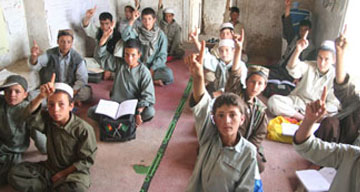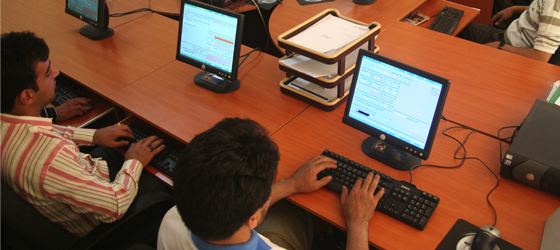

Some students are not as fortunate to be brought up in a culture that has access to quality education which we as Furman students often take for granted. I will take a look at the education in Afghanistan and the challenges and improvements that are taking place. Before reading on, watch this YouTube video provided by the IRC: International Rescue Committee that focuses on Afghan education.
Since the fall of the Taliban in 2001, enrollment was approximately 43% for boys and only 3% for girls. Females had been forbidden to attend school or teach during this time and only 21,000 highly under-educated teachers existed (which equaled 240 students per teacher). The International Development Association (IDA) has helped finance multiple initiatives (such as Afghanistan Skills Development Project in hopes to increase the number of immediately-employable graduates by building a system that is equitable, market responsive, and cost-effective) providing grants to all 34 provinces. Funds provide teacher training, educational materials, construction, and curriculum standards.
- Enrollment: in grades 1-12 increased from 3.9 million in 2004 to 6.2 million in 2008
- Girls’ Enrollment: increased from 839,000 to more than 2.2 million
- Boys’ Enrollment: increased from 2.6 million to 3.9 million
- Training: 32,467 teachers took a comprehensive training module (160,000 teachers total in Afghanistan)
- Construction: 58 schools (mainly for girls) were refurbished or built
Currently, Afghanistan Reconstruction Trust Fund approved on January 29, 2010 will have contributions used to finance Afghanistan’s education program and the Education Quality Improvement Program will assist with basic education, school construction, and school upgrades. Committees are composed of local community members and they form partnerships with the local government to manage education needs. Such education is key to foster an outlook for a positive future for the country by eliminating poverty and decreasing the gender gap.





